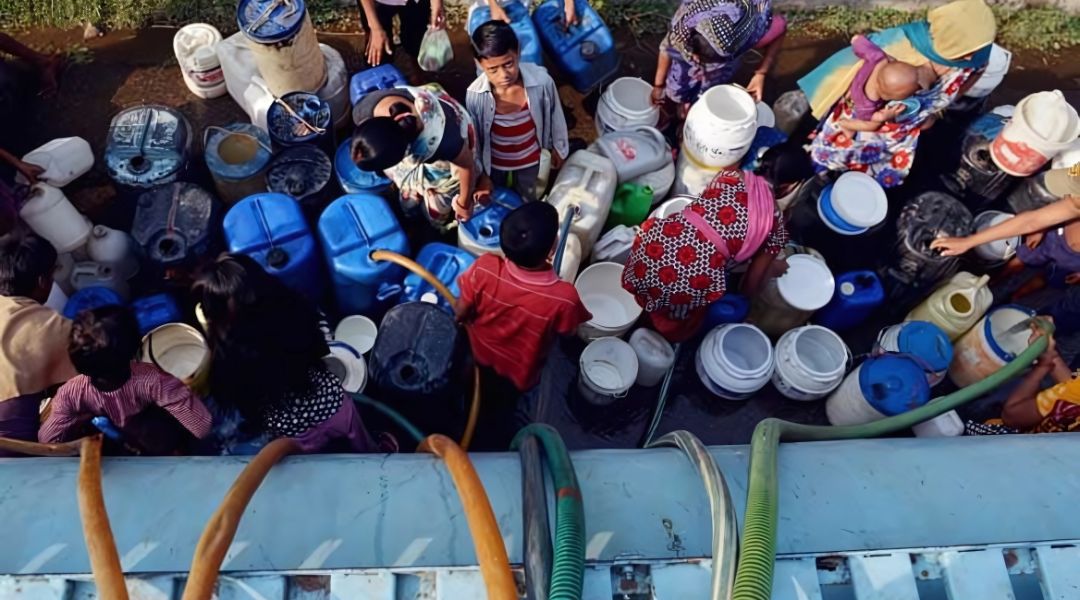
Heard of the Mafias in Bangalore? They are the ones helping you get one of the most essential things in life, water. Ever seen people queueing up to collect water from water tankers? It is a common sight in many big Indian cities, but most prominent in Bangalore as the city faces the dangers of water shortage.
These ‘mafias’ roam around in water tankers and provide groundwater to India’s neighbourhood. Most, informal and unauthorised.
Who are the Water Mafias?
In many parts of Bangalore water scarcity has been created deliberately – where government water supply has failed or are not in operation. A nexus of thugs, local politicians, few Water Department employees run a parallel and private water supply network. This network is controlled by water tanker operators backed by legislators, corporators and some powerful politicians.
Operation – Water. And how its done.
The rise of water mafias suggests government water supply has failed. These mafias blur the boundaries of private and public, formal and informal, and state and society as they strategically operate within these boundaries. The actions of these mafias need to be understood beyond the point of just profit and money. Rather, these mafias’ political activities are providing social protection, welfare, electoral lobbying, and facilitation of unauthorised land to lower middle-class buyers.
These mafias are successful as they often control both water and land regimes. Deregulation of land has provided crony capitalists the opportunity for exploitative land deals which is often supported by state institutions and land development mafias.
Therefore it is really important to develop a fuller appreciation on how informal land politics crisscrosses with informal water politics to understand the power dynamics that determine access to and exclusion from water.
Governing the water.
A close look at the operations of water mafias shows that they don’t influence independent, small-scale entrepreneurs operating outside the purview of the state but also includes large scale companies both in public and private sector. These organisations operate through water mafias and mafia-like strategies.
From policy perspective, it is crucial to avoid multi-operational water delivery into stand-alone ‘sectors’ and understand that there are many practices to brighten up water deliveries across typologies, sectors, and technologies. Hence, it is important to adopt a politicised and logical view to govern water.
